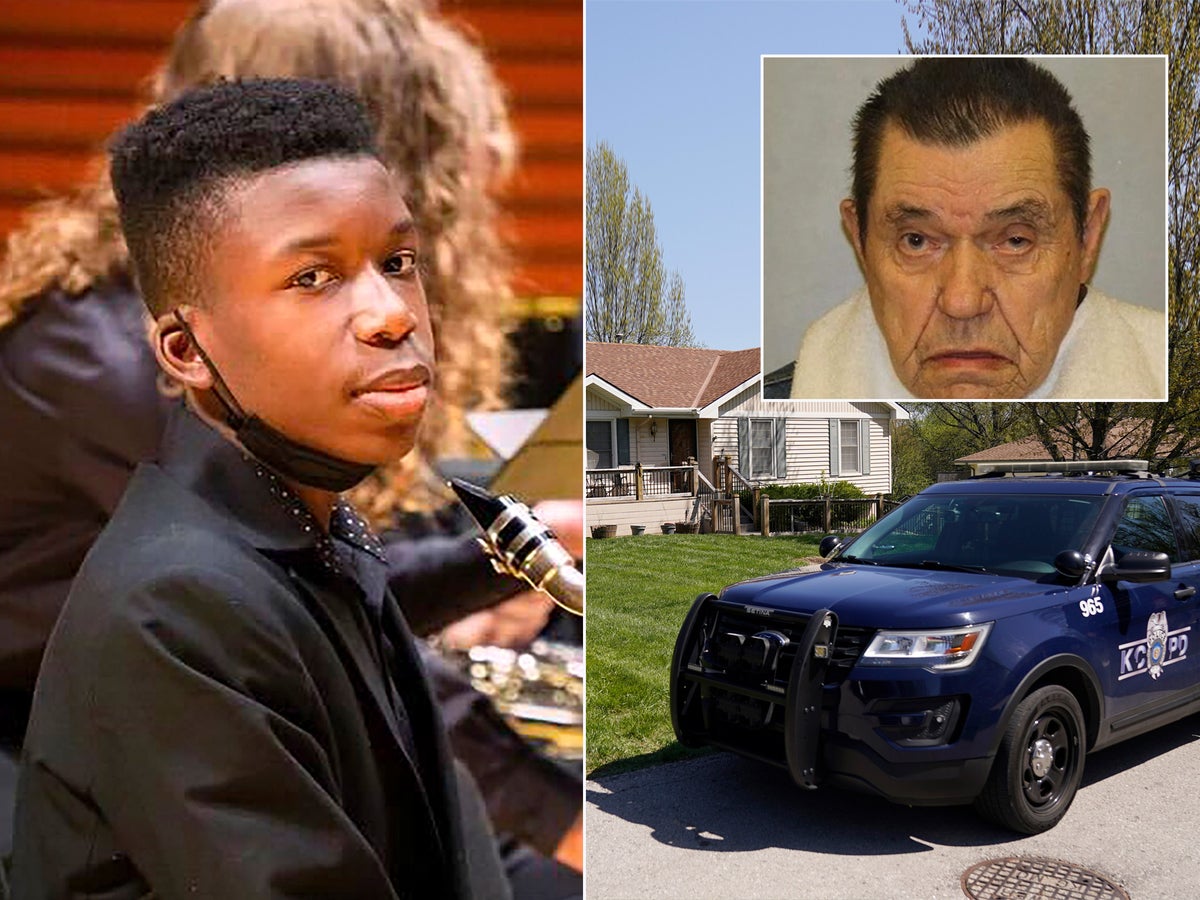
Ralph Yarl had no reason to think he was in danger when he approached the house where believed his younger brothers were waiting for him to pick them up, his family say.
"He got a couple of bullets inside his body, instead of a couple of twins coming out and giving him a hug," Ralph's mother Cleo Nagbe said in her first interview after the shooting.
Prosecutors have charged Andrew Lester, 85, with shooting Ralph twice on the evening of 13 April when the 16-year-old accidentally mixed up the older man's address with that of his brothers' friends.
Although Ralph survived and is reportedly in good spirits, the shooting sparked protests in Kansas City and condemnation across the country, with activists and civil rights lawyers describing it as part of a pattern of white Americans using deadly force against unarmed Black people based on exaggerated and unreasonable ideas of danger.
Yet many questions remain over exactly what happened, not just on the night of the shooting but in the three days that followed without any charges being announced against Ralph's assailant.
Here are some of the questions that still need answering.
Why was Ralph Yarl shot?
The simple, inadequate answer is that Ralph rang the wrong doorbell by accident. The harder question – what was going through Mr Lester's head – will be for a jury to decide should this case go to trial.
Ralph had meant to go to a house on 115th Terrace in the northeastern suburbs of Kansas City to pick up his younger twin brothers from a friend's home, according to lawyers representing his family.
But instead, he mistakenly went to the same house number on 115th Street, just one block away, and rang the doorbell just before 10pm. His family say he did not have his phone with him.
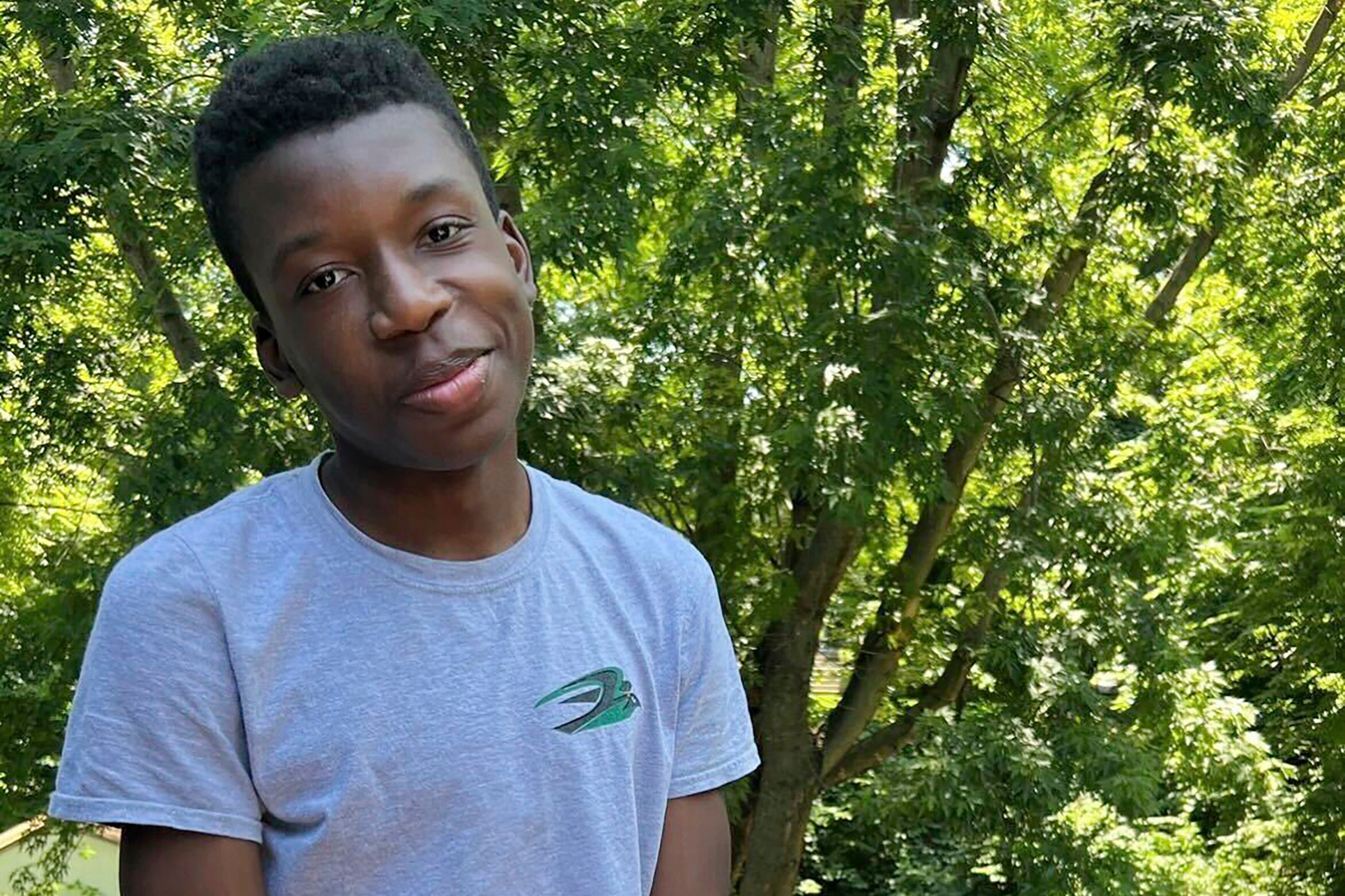
"Whoever was inside took a little longer than he anticipated to respond, and so he just waited at the door," Yarl family lawyer Lee Merritt – who also represented the families of Ahmaud Arbery and George Floyd – told NBC News on Monday. "He heard rustling around going on in the house and then finally the door was open."
According to Clay County Prosecutor Zachary Thompson, Mr Lester then fired twice at Ralph through a glass door using a .32 calibre revolver, hitting him in the head and then the arm.
The first shot knocked Ralph to the ground, he told police, and the second shot came when he was already down. At some point, Ralph alleges, Mr Lester yelled "don’t come back around here!", though there is conflicting information on whether this was before or after the shots.
Either way, Ralph managed to scramble away and tried to seek help. Yet according to his aunt Faith Spoonmore, he had to go to three houses before someone finally agreed to help him.
What has Andrew Lester said?
According to the police report, Mr Lester told officers that he believed someone was trying to break into his home.
Mr Lester lives alone and had already gone to bed when the doorbell rang. The sound apparently perturbed him enough to fetch his revolver before going to see who was there.
"Lester stated he opened the interior door, and saw a Black male approximately six feet tall pulling on the exterior storm door handle," the report alleges, adding that Ralph disputes the claim that he pulled on the door handle.
"[Mr Lester] stated he believed someone was attempting to break into the house, and shot twice within a few seconds of opening the door," the report continues.
He told officers that firing his revolver "was the last thing he wanted to do", but that he was "scared to death" because of Ralph's height and his own old age.
Ms Spoonmoore has challenged the former claim, saying: "I doubt Ralph is even 170 pounds. Ralph is not even six feet."
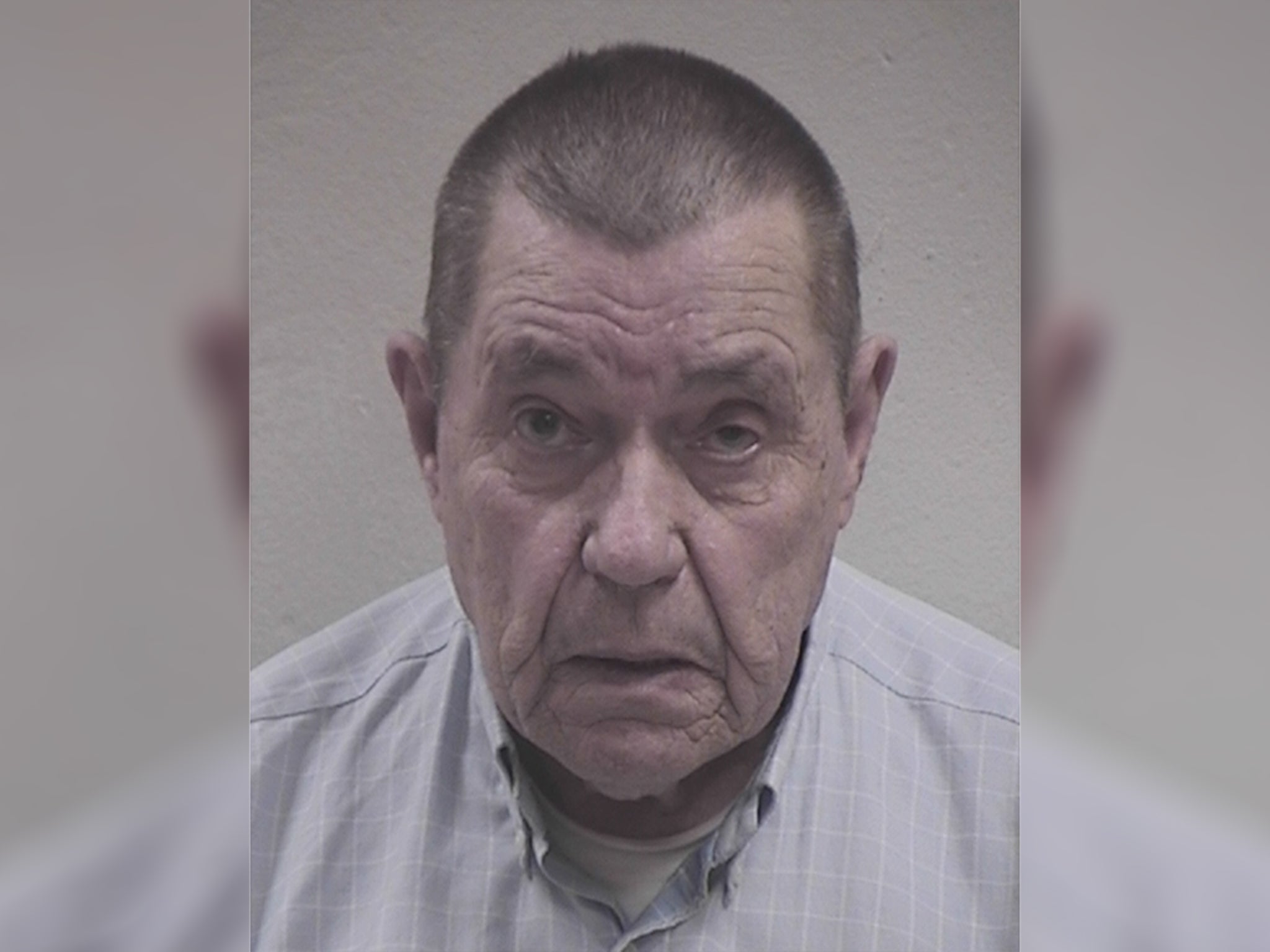
One police detective wrote that Mr Lester "believed he was protecting himself from a physical confrontation and could not take the chance of the male coming in".
Mr Thompson, the county prosecutor, said on Monday that there was a "racial component" to the case, without giving any details.
Mr Merritt was more explicit, suggesting that the shooting was part of a pattern of white Americans exaggerating the danger posed to them by Black people, with lethal consequences.
"It’s not only Mr Lester who says he 'fears for his life' when he sees Black people," Mr Merritt said. "It’s almost every cop who says, 'I feared for my life' as justification for deadly use of force against an unarmed suspect. We hear it every day.
"We need to address that in our culture. There seems to be an animosity or violence associated with just Blackness alone."
Mr Lester is due to appear in court and respond to the charges on Wednesday 19 April.
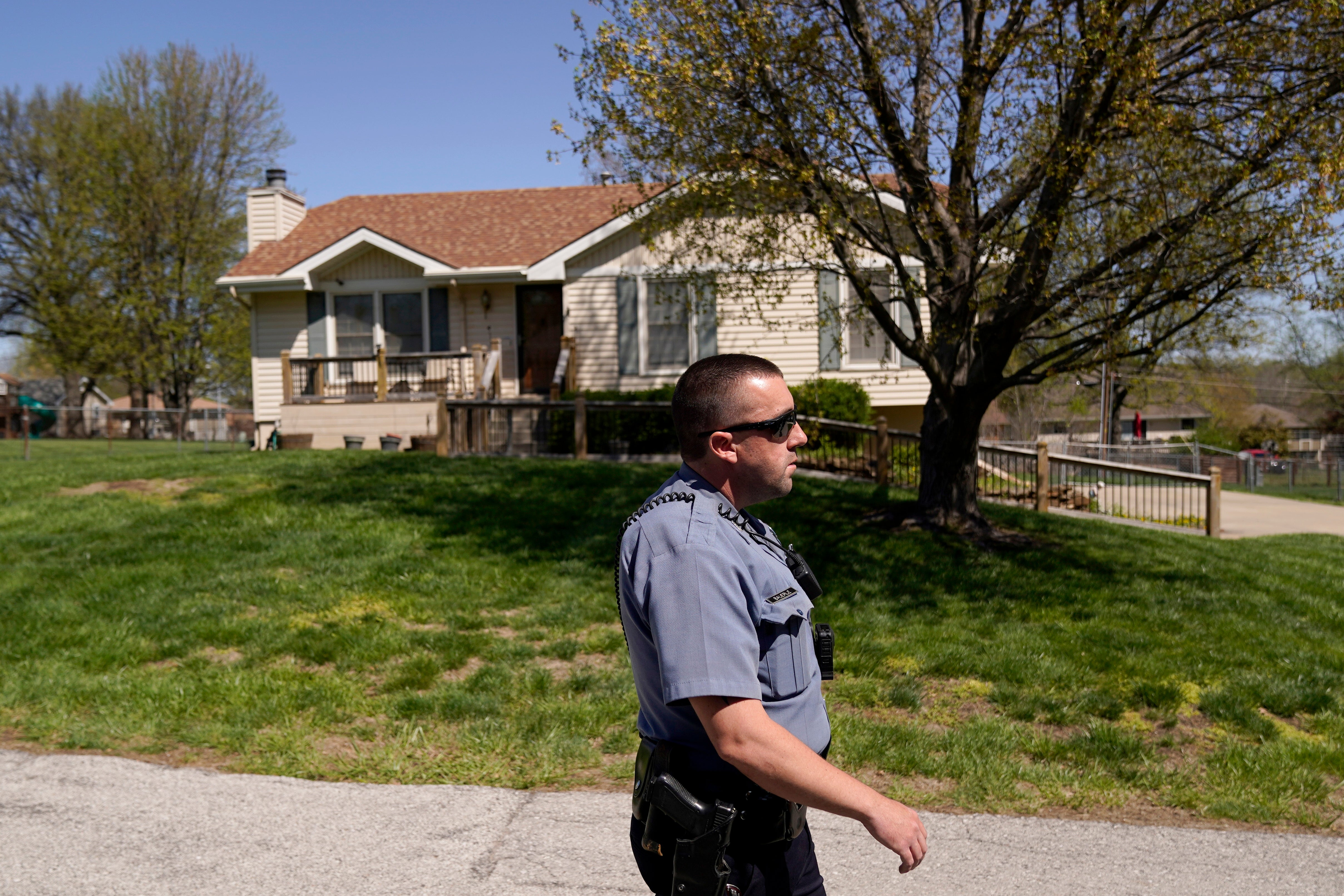
Why did it take so long to charge and arrest Lester?
We still don't really know. Andrew Lester gave himself up to the police on Tuesday 18 April, and was released that evening on bail after paying a $200,000 bond.
In fact, Mr Lester had already been taken into custody on the night of the shooting five days earlier, after police reportedly found him standing inside his house behind the shattered glass storm door.
But according to arrest logs and media reports, he was held for less than two hours before being released by the Kansas City Police Department (KCPD).
That raised alarm bells for civil rights activists, given that police officers across the US have frequently justified fatal shootings of unarmed and often Black citizens by claiming, however questionably, that they believed they were at imminent risk of violence.
“We’re frustrated with law enforcement and their failure to take responsibility for the denial of this family’s due process. No one has owned up to it," Mr Merritt said. "This 16-year-old unarmed boy didn’t actually pose a threat. But far too often in America, his skin alone is his weapon."
Police and prosecutors have since claimed that they released Mr Lester that night because they could not hold him longer than 24 hours without charging him, and that they did not charge him because officers needed to get a victim statement from Ralph, who was still in hospital in critical condition.
Ralph's lawyers have contested that, saying that he actually gave an interview to investigators from his hospital bed on Friday – within the 24-hour limit.
"There is no excuse for the release of this armed and dangerous suspect after admitting to shooting an unarmed, non-threatening, and defenceless teenager that rang his doorbell,” the lawyers said prior to Mr Lester surrendering himself.
"We demand swift action from Clay County prosecutors and law enforcement to identify, arrest, and prosecute to the full extent of the law the man responsible for this horrendous and unjustifiable shooting."
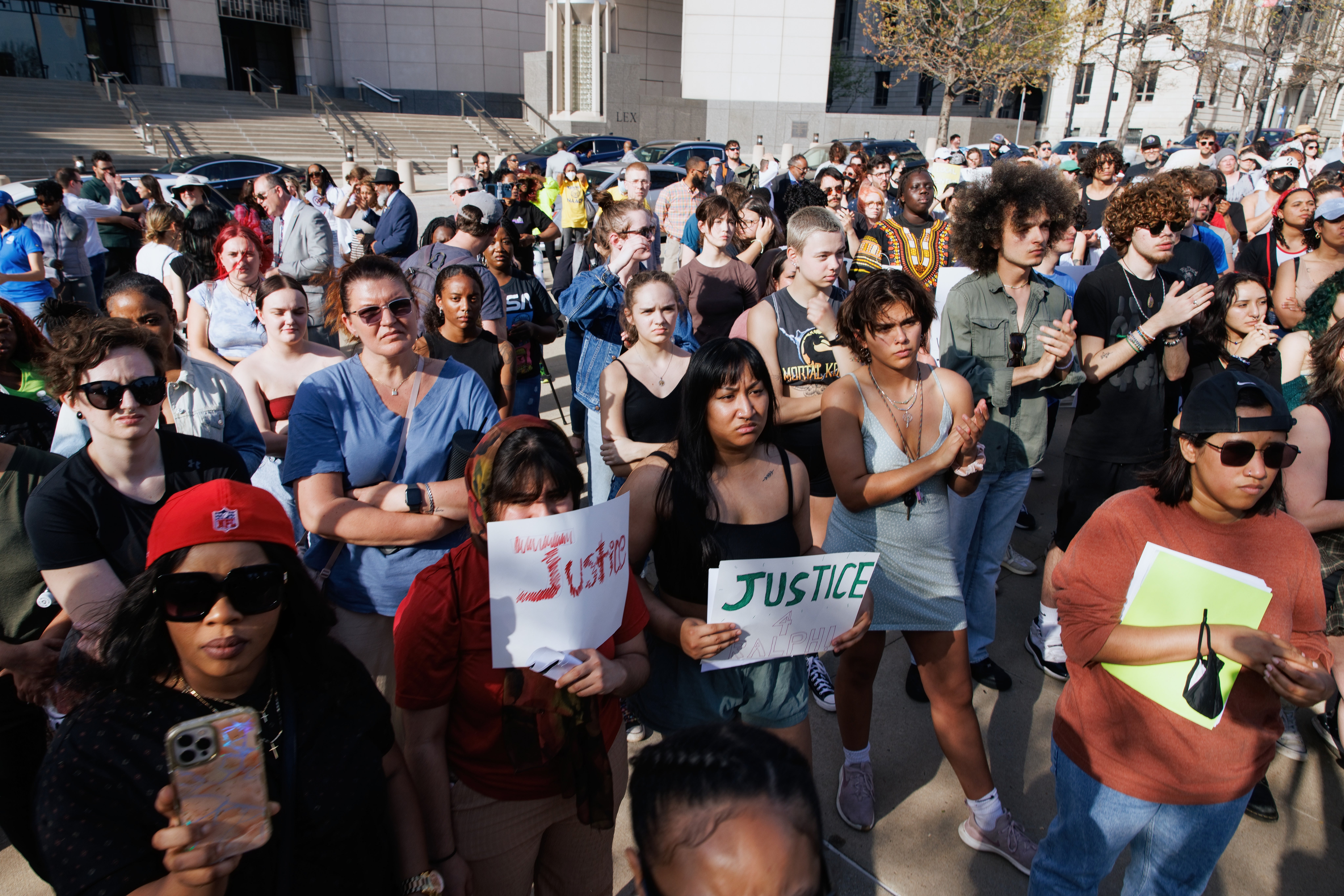
Gwen Grant, head of the Urban League of Greater Kansas City, likewise said: "It is appalling and flat-out unacceptable that the shooter remains free. It is extremely difficult to understand why a statement from the victim is required to detain the assailant."
A KCPD spokesperson told The Kansas City Star that this was only a "cursory" interview, not a formal statement, which would need to be done "away from medical personnel".
The decision to release Mr Lester hours after the shooting was a key spark for protests throughout Kansas City over the weekend, and the fact that he was not immediately arrested on Monday 17 April when the charges were announced provoked further outrage.
"This shows that we are less important and that equal justice in the process is not a reality for us," said Reverend Vernon P Howard, president of the Kansas City branch of the Southern Christian Leadership Conference. “The law enforcement agency responsible for the arrest is failing, which starts at the top."
What are the charges?
Mr Lester has been charged with assault in the first degree, which carries a maximum sentence of life in prison, and armed criminal action, which is punishable by between three and 15 years in prison.
In a press conference on Monday 17 April, Mr Thompson said that Mr Lester was accused of the highest category of felony that exists in Missouri state law.
Some journalists and activists have questioned why Mr Lester was not charged with attempted murder or with a hate crime, if there is indeed a "racial component" to the case.
Prosecutors said that both of these charges would be a lower class of felony with a lower degree of mandatory punishment.
Asked by a reporter whether he would consider adding those charges to the rap sheet in addition to the higher felonies, Mr Thompson gave scant details, saying only: "At that point you would be talking about double jeopardy issues."
What are Missouri’s gun laws?
Gun control advocates characterise Missouri as being one of the loosest states in the Union for restricting access to deadly weapons.
The campaign group Everytown for Gun Safety rates Missouri's "gun law strength" at nine out of 100. The Giffords Law Center says it has "appallingly weak gun laws and one of the country’s highest gun death rates".
According to the pro-gun National Rifle Association, Missouri does not require a permit for citizens and lawful permanent residents to purchase or carry handguns, shotguns, or rifles. Nor does it require firearms to be registered or owners to get a gun licence.
That is thanks to the state's Republican-ruled legislature, which voted in 2014 to lower the minimum age for concealed weapons from 21 to 19, and in 2016 to allow concealed carry without any permit or special firearms training.
There are also no state regulations on gun dealers, although federal laws remain in place – not for lack of trying by pro-gun legislators.
In 2021, Republicans voted to ban all Missouri law enforcement bodies from enforcing federal gun laws, but in March a federal court declared that act unconstitutional.
Is this a ‘Stand Your Ground’ case?
Stand Your Ground is a legal doctrine that allows people to use deadly force to defend themselves from apparent threats, without having any legal duty to try retreating first.
By contrast, some US states and English common law – from which much US law derives – do not permit the use of deadly force in self-defence if a jury finds that you could have retreated from the situation without putting yourself at serious risk.
In 2016, Missouri Republicans expanded its Stand Your Ground rules to cover not just a defendant's home or car but any place where they have a legal right to be.
Specifically, the law says: "A person may, subject to the provisions of subsection 2, use physical force upon another person when and to the extent he or she reasonably believes such force to be necessary to defend himself or herself or a third person from what he or she reasonably believes to be the use or imminent use of unlawful force by such other person."
It adds: "A person does not have a duty to retreat... from a dwelling, residence, or vehicle where the person is not unlawfully entering or unlawfully remaining."
Since then, a study by a team of researchers from the University of Oxford, the University of Pennsylvania, and the London School of Hygiene and Tropical Medicine has found that states that implemented such laws saw their homicide rates increase by between 16 and 34 per cent.
Nevertheless, Stand Your Ground laws still require someone accused of murder or assault to persuade a court that they acted reasonably and proportionately.
"You can’t just shoot people who come to your door," Missouri criminal defence lawyer Kevin Jamison told The Kansas City Star. St Louis law professor Anders Walker told The Washington Post that ringing a doorbell was not a justification for deadly force.
However, Republicans have tried to weaken this requirement, filing a bill last year that would have reversed the burden of proof in self-defence cases. Rather than a defendant having to prove that their belief was reasonable, the law would assume by default that it was, and prosecutors would have to prove that wrong.
Opponents have derisively referred to such bills as the "Make Murder Legal Act", and the bill failed after opposition from prosecutors and law enforcement officials, including some conservatives.
"I think we now have a shoot first, ask later policy in this state, or at least that is what people have interpreted it to be," said Maggie Nurrenbern, a Democratic state legislator.
“These shoot first laws, stand your ground laws – they’re harmful and they’re dangerous policies that give people a license to kill,” said Carthesa Dillard of Moms Demand Action, who has lost two of her family members to gun violence.
Under current laws, some experts do believe Mr Lester may have a workable case. Robert Spitzer, a New York political science professor who researches gun policy, said Missouri state law offers "wide latitude for people to use lethal force".
St Louise defence lawyer Nina McDonnell agreed, saying that prosecutors have a strong case but Stand Your Ground laws are a "huge hurdle" to overcome.
"The defendant was in his house and has expressed that he was in fear," she said.







